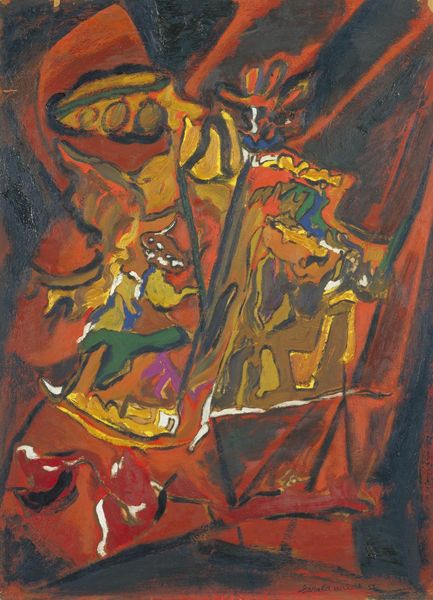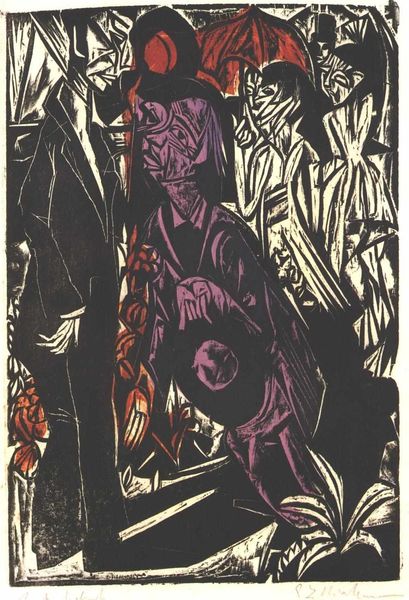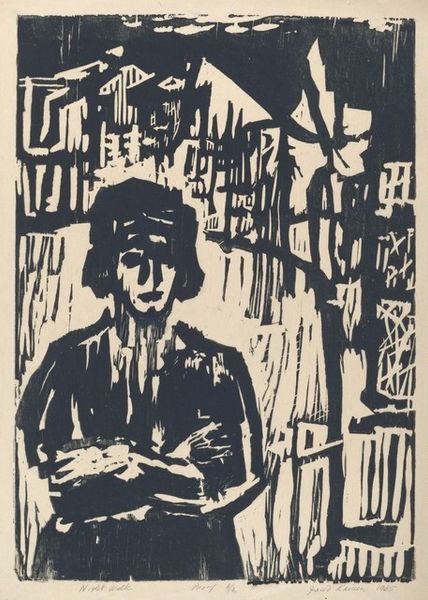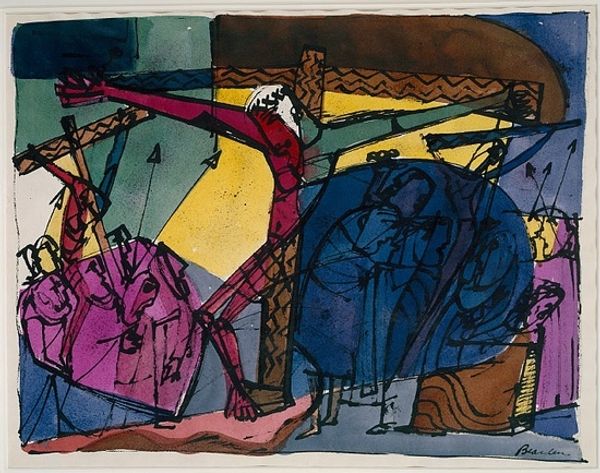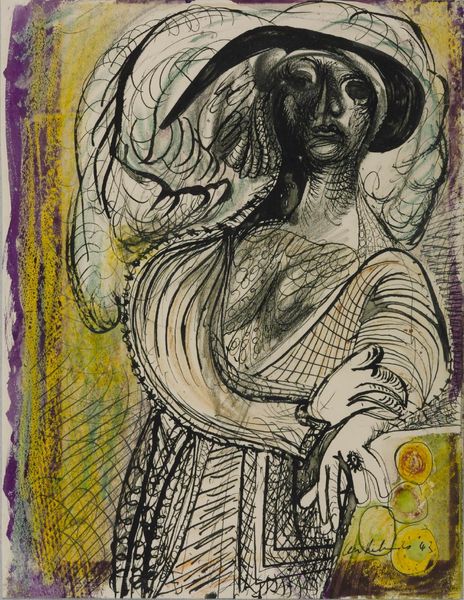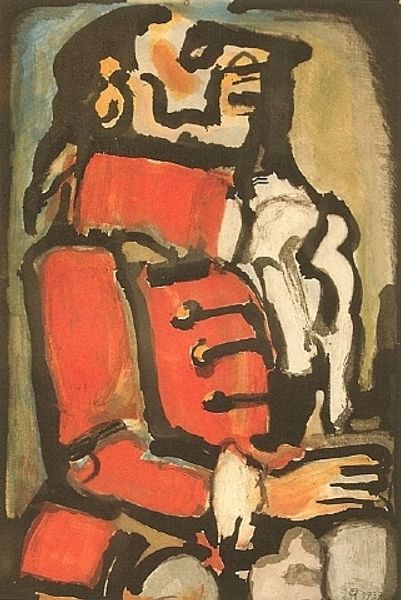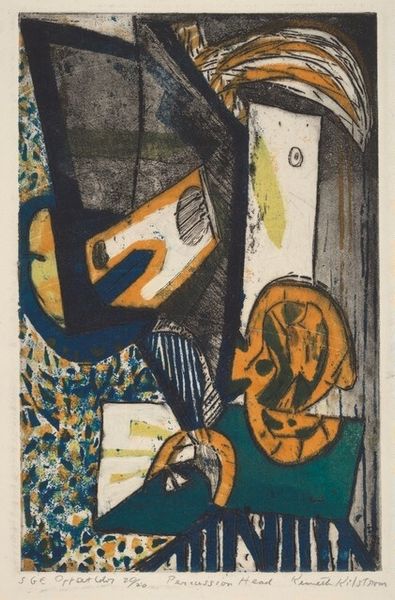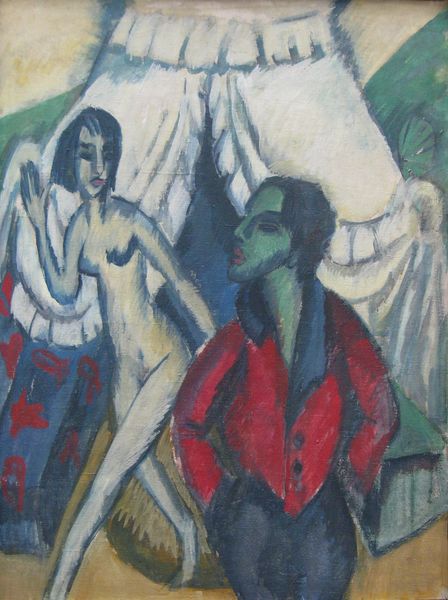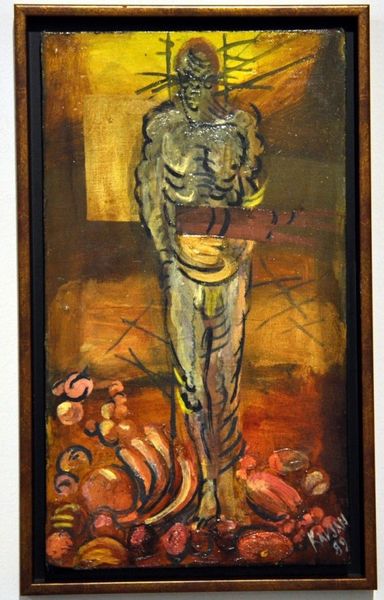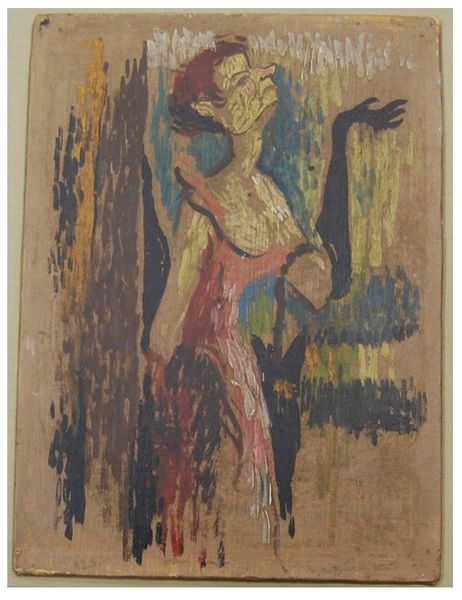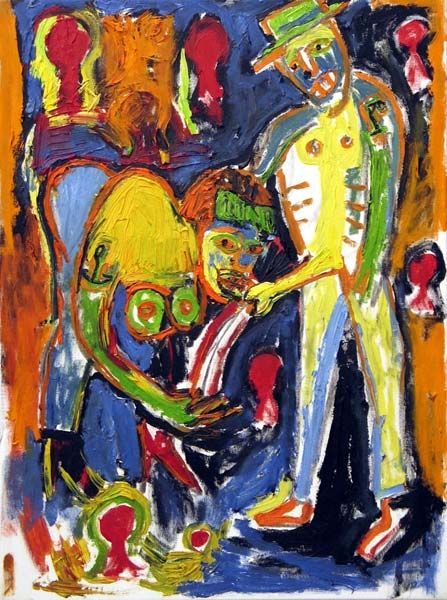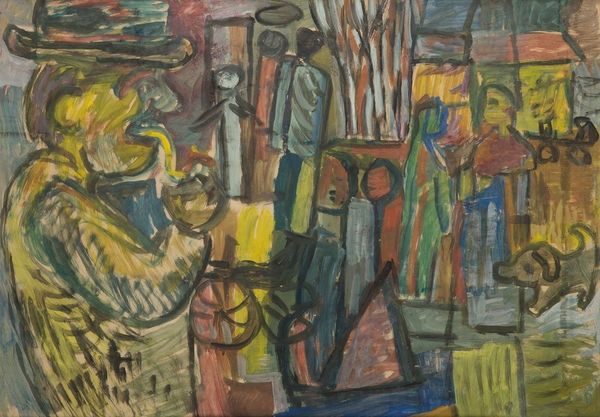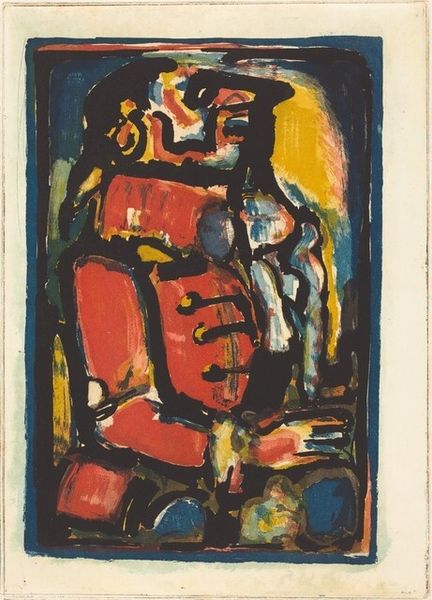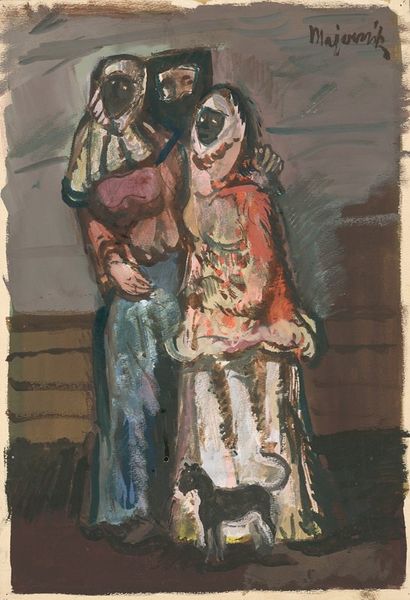
Copyright: Public domain
Curator: This is Max Beckmann’s “The King,” painted in 1937 using oil on canvas. Beckmann was a key figure in German Expressionism, a movement grappling with the anxieties of modernity and societal upheaval. Editor: Immediately, I'm struck by the mood—a kind of oppressive darkness, like a play unfolding under dim, flickering lights. And that palette—claustrophobic purples and muted yellows! The King himself appears... almost haunted, or perhaps… uncomfortable? Curator: Uncomfortable is an interesting way to put it. Beckmann painted this while living in Nazi Germany, before his eventual exile to Amsterdam. It’s impossible to separate this work from that historical context, considering his anxieties regarding the war. "The King," along with the people that surround him, certainly could evoke powerlessness and corruption during periods of turmoil. Editor: It absolutely reeks of unease. Look at the way he's positioned—smack in the center, but boxed in, almost consumed by those around him. The heavy outlines amplify that feeling. Is that supposed to be a child to his left? Curator: One might consider this child to be an allegorical representation of innocence, forced to observe what is occurring around her. Expressionism relies on distortion and exaggeration to convey heightened emotional states and, indeed, socio-political critique. Beckmann leverages art historical depictions of monarchy, but does so by dismantling its visual rhetoric and replacing it with disquieting colors and grim faces. Editor: So, it’s less about glorifying royalty and more about… deconstructing its image, making us question what “king” even *means* in a world barreling toward catastrophe. What do you make of his expression? Almost seems blank, distant... resigned? Curator: Resigned, yes, and perhaps even culpable. Expressionist artists utilized emotion in response to events they observed or were directly involved in, and in the Expressionistic style, he doesn’t appear as triumphant, but certainly as though he’s lost some part of himself to assume his own position. Editor: I can't shake this feeling of a pressure cooker about to blow. It's not a pleasant painting, but one that burrows its way under your skin. Curator: Agreed. I hope that appreciating its artistic history will add to its enduring significance in this turbulent epoch.
Comments
No comments
Be the first to comment and join the conversation on the ultimate creative platform.
